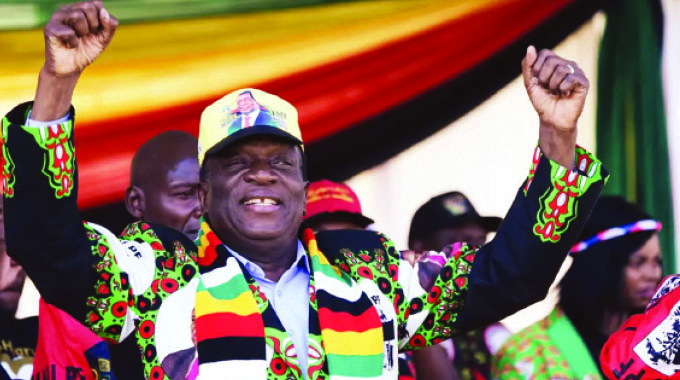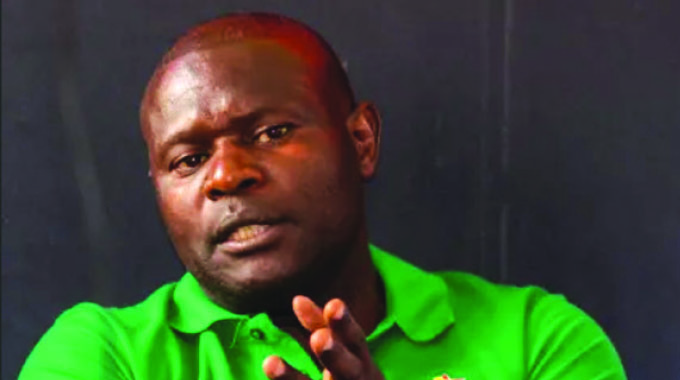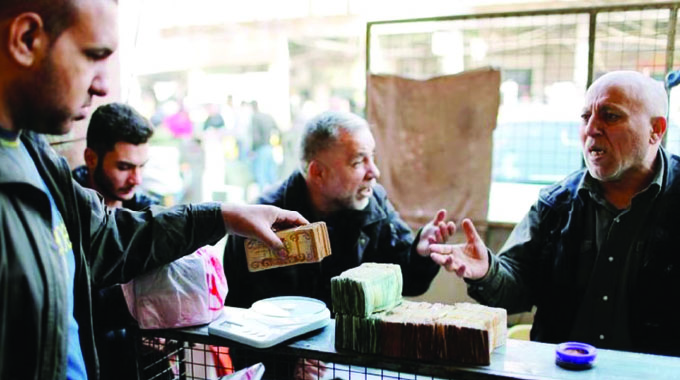Achievements point to Zanu PF’s inevitable victory

Staff Reporter
As the 2023 harmonised elections draw nearer it is becoming clearer that the ruling party, Zanu PF under the leadership of President Mnangagwa is headed for a resounding win.
President Mnangagwa, is living up to his inauguration promise of making Zimbabwe stable by ensuring sustainability in all sectors including the socio-economic and political well-being of the nation.
The President has not deviated from emphasising that the major challenge facing the country is economic growth.
He has consistently urged his lieutenants and every citizen to redouble efforts in rebuilding an economy long battered by economic sanctions
President Mnangagwa has shown that he is not one to shy away from issues that many critics had thought he would shy away from.
He has had to deal with contentious issues, such as the Gukurahundi matter in Matabeleland, by tackling the issue head-on, taking the time to meet and speak with the traditional leaders and civil society organisations to identify urgent priorities requiring urgent attention.
The purpose of his visits to Matabeleland was to listen, more than talk. In earlier listening sessions, one of the main issues raised was that many people in the region who may have lost parents during the disturbance did not have identity documents.
The President responded by directing relevant departments to go into those affected communities to ensure that documents were issued to all who need them.
Many more contentious issues still need to be addressed, but the President’s resolve to personally deal with the matter is being appreciated by most citizens.
And as part of efforts to come up with home-grown solutions to deal with any internal political matters, the President has reached out to his political opponents in the previous presidential race to be part of the Political Actors Dialogue (POLAD) – platform where they can contribute ideas on how to carry the country forward.
On the economic anterior, President Mnangagwa has made infrastructural development his administration’s priority.
He envisions infrastructural development as a viable tool for the attainment an Upper Middle-Income Society by 2030.
In its statement at the conclusion of its last virtual meeting with Zimbabwe, the IMF noted significant efforts by the authorities to stabilise the local currency and lower inflation, and said additional efforts were needed to solidify the stabilisation trends and accelerate reforms.
While getting kudos from the IMF is not a yardstick for judging economic growth, it is a rare praise from an organisation known for its negative attitude towards Zimbabwe.
Through comprehensive reforms undertaken since the ushering in of the New Dispensation in 2017, Zimbabwe is slowly reclaiming its space in the global comity of progressive nations.
Numerous high-impact investments covering different sectors of the economy are being harnessed amid innovative strides by higher and tertiary learning centres, robust infrastructure development projects and increasing domestic production.
These are some of the tangible exploits of the Zanu-PF Government’s determination towards creating more job opportunities and improving ordinary people’s livelihoods.
Addressing thousands of people who came to meet him and witness the official commissioning of 18 Public Service Commission (PSC) buses at Pelandaba Stadium in Gwanda, Matabeleland Province last year, President Mnangagwa said despite the continued imposition of Western sanctions, Zimbabwe had been on a transformative drive.
The President added that the US$67 million Central Shaft Expansion and the US$14 million 12,2 megawatts solar projects, which he officially commissioned at Blanket Mine, were some of the prime success stories showing that indeed “Zimbabwe is Open for Business”.
Already, the investment has positioned parent company, Caledonia Mining Corporation, to increase output to about 80 000 ounces per annum while employment levels have been pushed to above 1 600 workers from 500 with revenues increasing from US$123 million per annum to more than US$148 million per annum.
The mining sector alone is projected to clock its target of a US$12 billion Mining Economy by the end of this year up from the current US$8 billion, according to official reports, this is a huge margin compared to about US$2.1 billion when the Second Republic came into power.
Despite adverse climate change impacts, Government reports show that growing public and private sector investments towards transforming the agriculture industry have seen the sector surpassing the US$8,2 billion target set under the National Development Strategy (NDS1-2021-2025), ahead of time.
The Second Republic has much to sell to its support base to ensure a resounding victory in the upcoming elections. Evidence can be seen at every turn, such as the completion of dams in areas where many settlements lacked reliable clean water sources for generations.
Marovanyati in Buhera is one such example that is set to support new farming areas, while dry areas such as Bubi that were never identified with horticulture and farming are now irrigated and producing different types of crops including winter wheat.
Government has been rolling out irrigation projects at a rate unseen in our history, and while the opposition sat on their laurels and delivered nothing, the President commissioned piped water to villages in arid Chivi.
Our President is an all-rounder; despite his pre-digital generation, he has embraced innovation and adopted its use especially in the medicine field.
Last year he commissioned the Medical Oxygen Plant in Mutare.
The President has also ensured the smooth flow of traffic for both goods and passengers.
By ensuring a safe road network, major roads have been repaired.
By killing two birds with one stone, President Mnangagwa ensured that local companies were awarded tenders to fix our roads, this meant he was able to sustain jobs as well as grow our industries.
In summary, nothing is likely to tilt Zanu-PF evident win-win ahead of the upcoming plebiscite. In fact, with no visibility of opposition structures on the ground where it matters, and no viable counter argument to sell on the opposition party’s (CCC), there is a likelihood that the Zanu PF is likely to broaden its support base even more before elections and win the upcoming elections.








Comments